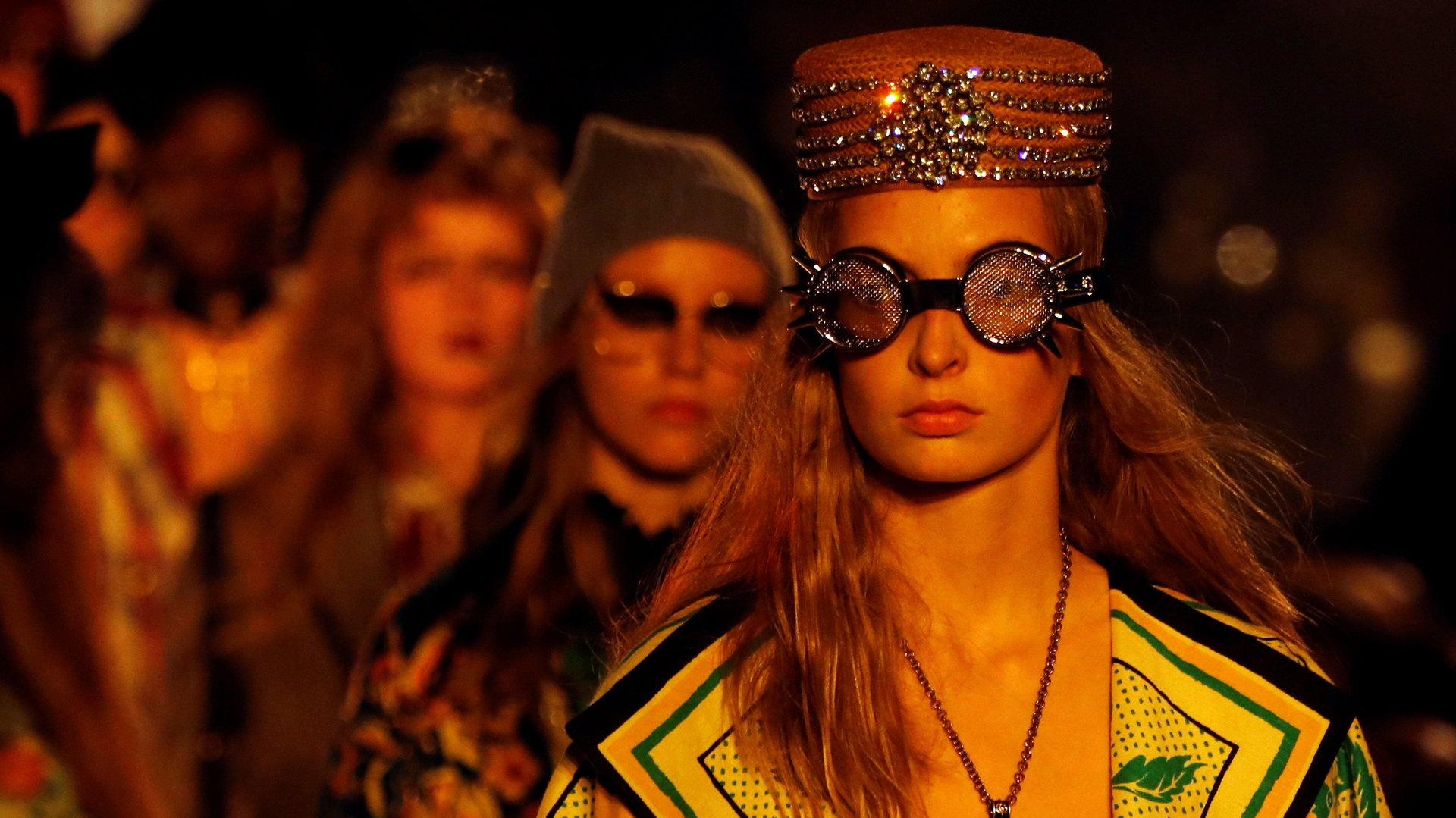What’s wrong with Gucci?
Not so long ago, Gucci was the shining star in the constellation of brands owned by Kering, the French luxury group. Sales had gone up like a rocket after Alessandro Michele introduced his frenetically geeky look to the brand when he took over as creative chief in 2015.


Not so long ago, Gucci was the shining star in the constellation of brands owned by Kering, the French luxury group. Sales had gone up like a rocket after Alessandro Michele introduced his frenetically geeky look to the brand when he took over as creative chief in 2015.
Now Gucci is bringing Kering down. In the recent quarter (pdf), the brand’s sales fell 13.5% compared to the same period last year. Saint Laurent, Kering’s next largest label, dipped too, but not to the same degree. Bottega Veneta, which has been in the midst of a revival, actually grew in the quarter.
Given that Gucci makes up more than half of Kering’s revenue, its performance was a drag on the whole company. At the same time, some other top names in luxury are already showing signs of a recovery from the pandemic.
So what’s wrong with Gucci?
Even before the pandemic Gucci’s once-stellar growth was slowing.
Of course, it had become harder for the company to keep sales rising at the same breakneck pace. But after several years of the embellishment and excess epitomized in Michele’s vision of Gucci, analysts say fashion’s tide has begun turning toward a more subdued, minimal look. Bottega Veneta has become its embodiment, and even Gucci has tried adapting to a degree. While shoppers are still doling out cash for Gucci’s shoes, bags, and clothes, the appeal of its ornate image may have begun to fade. In luxury fashion, after all, creative directors tend to have a limited shelf-life.
The pandemic hasn’t helped. At the outset of the outbreak, analysts and industry insiders predicted shoppers would shift their spending to muted items that weren’t tied to any one fashion season. One year into the era of Covid-19, several luxury retailers have reported more customers doing just that.
The concern that a change in fashion, rather than the pandemic, is behind Gucci’s slide was evident among analysts and investors who questioned Kering’s CEO, François-Henri Pinault, during an earnings call to discuss the company’s latest results. Pinault was adamant, however, that Gucci remains desirable and pointed to other culprits.
Gucci does a sizable portion of its sales in Europe to high-spending tourists, especially from China, but travel has been essentially wiped out because of Covid-19. The company has also been reducing its wholesale business as it focuses on doing more of its own sales straight to shoppers. And then Gucci pushed back the launch of its annual cruise collection, which Pinault said is actually its biggest of the year, from October to December, meaning new items weren’t flowing into stores or online for most of the quarter.
As evidence of the brand’s strength, Pinault said 1.7 million shoppers registered for its raffle to buy from Gucci’s recent collaboration with The North Face. Sales are still strong across China too. Gucci is also gearing up for a big year in 2021. It’s the brand’s 100th anniversary, and Kering has around 150 events planned around the world.
If Gucci’s stumbles are primarily due to the pandemic, such a large marketing push should offer a boost. But if shoppers are getting tired of Gucci, it may take more to get the brand back on the rise for the long-term.